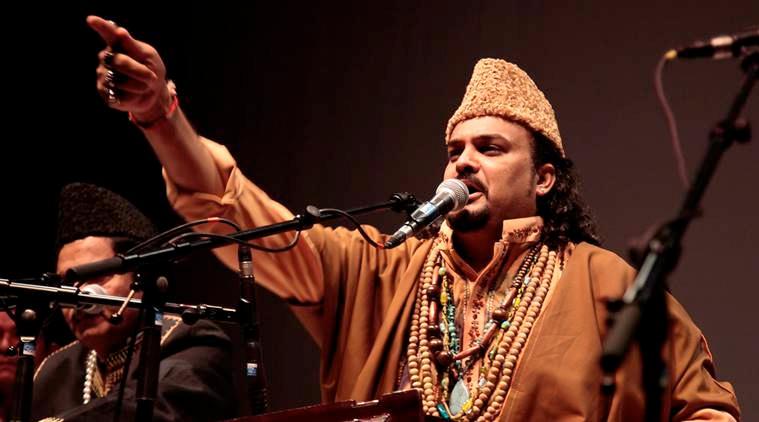Pakistani musician slain in what police call ‘act of terror’
Karachi has been the scene of many deadly attacks. Wednesday, one of the nation's best-known sufi musicians, Amjad Sabri, was slain by assailants on a motorcycle.
One of Pakistan's best known Sufi musicians was shot dead by unknown assailants on a motorcycle in Karachi on Wednesday, triggering an outpouring of grief over what police described as an "act of terror."
Amjad Sabri, aged around 45, was travelling by car with a companion in the city's Liaqatabad area, when a motorcycle pulled up alongside the vehicle and the attackers opened fire, Farooq Sanjarani, a police officer told AFP.
Sabri was hit by five bullets and was declared dead at Abbasi Shaheed Hospital while his companion, named as a relative, Saleem Sabri, was in critical condition, a hospital source added.
"It was a targeted killing and an act of terrorism," Muqaddas Haider, another senior police officer said, without naming possible suspects.
Sabri was a "Qawwal," or singer of "Qawwali," which is a traditional form of Islamic devotional music that is popular across South Asia with roots tracing back to the 13th century.
The music is closely associated with Sufism, a mystical sect of Islam that is viewed as heretical by hardline groups such as the Taliban.
The Taliban and other Islamist groups have carried out major attacks on Sufi mosques and shrines in recent years, including the 2010 bombing of the Data Darbar shrine in Lahore that killed more than 40 people. In January 2015, Pakistan instituted a National Action Plan to monitor and prevent religious violence after Taliban gunmen stormed a school in Peshawar in December 2014, killing more than 130 schoolchildren. But some Pakistanis say the country hasn't done enough.
"People here are quite angry at the government and the security forces," says BBC correspondent Shaimaa Khalil. "They are saying, 'Why is it that after every major attack, we hear the same thing?'"
Sabri's death has made Sufis and other religious minorities in Pakistan questions their safety even more.
"[He was] as high profile as you can get as a Qawwali singer, and if someone on that level can be killed in broad daylight, many Sufis are saying, 'How safe are we?'" Khalil says. "It brings up a bigger question of minorities in general. Not just Sufis, what about Christians? What about Ahmadis?"
Sabri was the son of another legendary Qawwali singer, Ghulam Farid Sabri, who died in 1994. The younger Sabri was a fixture on national television and regularly performed on a morning show during the ongoing holy Muslim month of Ramadan.
In May 2014 he was asked by a court to respond to blasphemy charges following the airing of a controversial song-and-dance routine that was set to a Qawwali piece about the wedding of the Prophet Muhammad's daughter to his cousin.
His killing was met with shock and condemnation by many.
"Totally shocked to hear the news of @AmjadSabri. May Allah bless him with Jannah (heaven) for he praised Him & His Prophet beautifully all his life," tweeted Ayaz Sadiq, the speaker of Pakistan's parliament.
"Shocked and saddened by news of the killing of Amjad Sabri, not just a crime but an attack on our culture and heritage," added Mustafa Qadri, a human rights researcher at Amnesty International.
We want to hear your feedback so we can keep improving our website, theworld.org. Please fill out this quick survey and let us know your thoughts (your answers will be anonymous). Thanks for your time!
